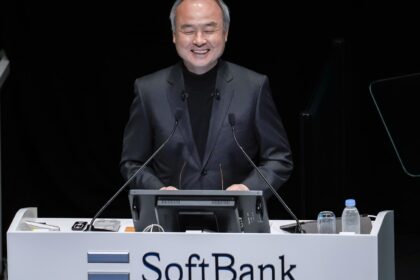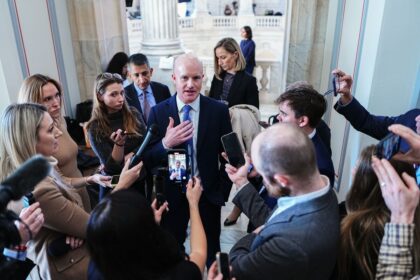SoftBank Group Corp., the Japanese tech investment conglomerate led by Masayoshi Son, has officially acknowledged delays in the much-anticipated Stargate project, its grand-scale artificial intelligence initiative with OpenAI. Initially hailed as a potential leap forward in AI infrastructure and application, the Stargate project—envisioned as a critical bridge between supercomputing hardware and next-generation AI services—now faces a more extended timeline, according to sources close to the matter.
A Moonshot AI Vision, Now Grounded in Reality
First teased earlier this year, the Stargate project is part of Son’s renewed commitment to frontier technology investments, particularly artificial intelligence. Partnering with OpenAI, the startup backed by Microsoft and known for ChatGPT, SoftBank’s Stargate was pitched as an ambitious initiative to develop massive AI data centers and silicon infrastructure tailored to OpenAI’s exponential model demands.
But as the scale of the project came into focus—reportedly involving tens of billions of dollars in potential hardware investment and deep collaboration across global chip supply chains—SoftBank and OpenAI have now jointly agreed that more time is needed to assess feasibility, coordinate resources, and align technological roadmaps.
Engineering and Ecosystem Bottlenecks
Industry insiders note that Stargate was always going to test the limits of current infrastructure and supply chain capabilities. From custom AI chips to cutting-edge cooling systems and sustainable energy integration, the project required unprecedented cooperation between hardware designers, cloud providers, and AI researchers.
Complicating matters further is the global shortage of advanced semiconductor equipment, exacerbated by U.S.-China trade tensions, tight export controls, and overwhelming demand for AI-related silicon. According to people familiar with the project, some components critical to Stargate’s realization—particularly AI accelerators and fabrication equipment—are now delayed until 2026 or beyond.
Moreover, OpenAI itself is reportedly reassessing its longer-term model training strategy. After rolling out GPT-4, the company has slowed the pace of public releases, opting instead to refine safety mechanisms and build internal infrastructure—possibly influencing Stargate’s prioritization and scope.
Masayoshi Son: Still Committed, Still Optimistic
Despite the delay, Masayoshi Son remains bullish on the project’s long-term prospects. In a statement, a SoftBank spokesperson said, “Stargate represents a new era of intelligence infrastructure. While timelines are shifting, the vision remains intact. We are committed to building a future where AI helps humanity thrive.”
Son has made no secret of his desire to be at the forefront of AI development. In his most recent public remarks, he compared the emergence of AI to the industrial revolution, calling it “the opportunity of the century.” Stargate, in his words, is not just a technical investment but “an ark for human knowledge.”
OpenAI’s Strategic Calculations
For OpenAI, the Stargate partnership was seen as a way to expand its independence and broaden its base of backers beyond Microsoft. However, the company is now facing a delicate balancing act—managing its commercial alignment with Microsoft, who provides key cloud infrastructure, while exploring alternative pathways for future compute scale.
OpenAI’s leadership is also becoming more cautious about rapid deployment. CEO Sam Altman recently stated that while scale is still important, the AI community needs to move “thoughtfully and deliberately” to ensure the technology develops safely.
Global AI Arms Race Intensifies
While SoftBank recalibrates its Stargate timeline, competitors like Amazon, NVIDIA, and Google are doubling down on their AI data center buildouts. NVIDIA is pushing ahead with its DGX Cloud offering, while Amazon Web Services is investing heavily in its custom Trainium and Inferentia chips.
Stargate’s delay doesn’t mean SoftBank is out of the game—but it underscores the intense complexity, cost, and coordination involved in building the future’s AI backbone.
Outlook: Delay, Not Derailment
For now, Stargate remains a work in progress—a project too big to ignore, but too complex to rush. SoftBank’s willingness to acknowledge the delay may reflect a maturing approach, signaling that while the race for AI supremacy is on, cutting corners in infrastructure could cost far more in the long term.
The message from Tokyo to the AI world is clear: the future is still coming—but it may arrive a little later than expected.







